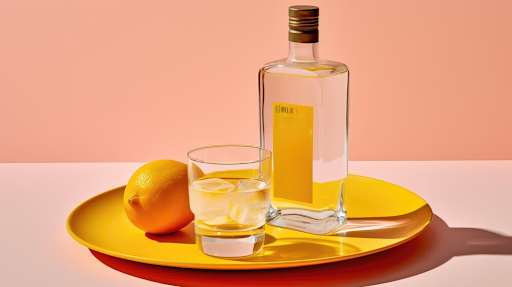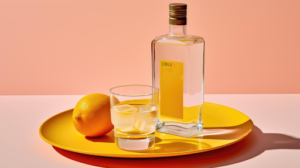Liqueurs, also known as spirits, are a delightful category of alcoholic beverages crafted by blending base spirits like vodka, whiskey, brandy, or rum with an array of flavours, including sugar and herbs. These beverages typically exhibit a sweet taste and boast a lower alcohol content compared to other spirits, making them suitable for various preferences. Liqueurs can be savoured on their own or used to infuse flavour into an extensive array of cocktails, providing a diverse and enjoyable drinking experience for everyone.
Types of Liqueurs
Liquor, or spirits, holds a significant role in socializing and celebrations globally, with four prominent categories taking centre stage: brandy and cognac, whiskey and scotch, gin and vodka, and tequila and rum. Each category boasts a distinct flavour profile that lends itself to the creation of a myriad of delicious cocktails or the enjoyment of a neat pour.
Brandy and Cognac, both derived from grapes, diverge in their production methods. Brandy undergoes distillation from wine, while Cognac is double-distilled wine infused with spices like cinnamon for added flavour. Exhibiting a smooth texture with a hint of sweetness, these liqueurs pair exceptionally well with dessert dishes such as crème brûlée or flambeed bananas foster.
Whiskey, made from grains like barley, and Scotch, exclusively produced from malted barley aged in oak barrels for a minimum of three years, offers distinct profiles. Whiskey often presents a smoky taste with caramel notes, while Scotch tends to be lighter, featuring hints of honeycomb or malty flavours. Both make excellent additions to classic cocktails like Manhattans.
History of Liqueurs
Liquors have woven themselves into the fabric of human history for centuries, enjoyed across diverse cultures and countries. Originating in ancient China, liquors were initially utilized for medicinal purposes. In medieval Europe, monks in monasteries began crafting the first liquors as early as the 13th century. By the 16th century, distilleries proliferated across Europe, producing various types of liquors, including brandy, whiskey, gin, and rum. The global popularity of liquors surged through colonialism and trade routes established by European powers like Spain and Portugal.
Today, a plethora of liqueurs from around the world, encompassing popular spirits such as vodka, tequila, Cognac, and whisky, offer unique flavour profiles ranging from sweet to dry to spicy, with some infused with herbs or spices for added complexity.
Production Process for Various Types of Liqueurs
The production process for various liqueurs is a meticulous journey involving distillation, ageing, blending, and other intricate processes. Distillation, a key step, transforms fermented grains or fruits into an alcoholic liquid known as “mash.” This mash is then heated until it boils off its alcohol content, which vaporizes into steam and condenses back into liquid form. The distilled spirit is often aged in wooden barrels, imparting a smooth flavour profile before being bottled as whiskey or brandy.
Blending is another crucial step, employed in creating liqueurs like peach schnapps or amaretto. It entails combining different spirits with sugar, spices, herbs, extracts, and other ingredients, resulting in a harmonious and flavorful concoction.
Popular Brands & Cocktails Featuring Different Types of Liqueurs
Alcoholic beverages have become an integral part of modern life, offering a means to unwind and celebrate. Various liquors contribute to the rich tapestry of cocktails, showcasing diverse flavours. Cointreau, a popular orange-flavoured liqueur from the Caribbean, elevates cocktails like Margaritas, Cosmopolitans, Sidecars, White Ladies, and Daiquiris. Another renowned brand, Grand Marnier, a cognac-based orange liqueur, enhances cocktails with its rich history dating back to 1880.
Conclusion
In conclusion, liqueurs stand out as remarkably versatile and flavorful alcoholic beverages, capable of being enjoyed in myriad ways. Whether savoured neat, on the rocks or as a key ingredient in cocktails, liqueurs offer a broad spectrum of experiences suitable for a diverse audience. With an extensive array of styles available, there’s undoubtedly a perfect liqueur to suit every palate and preference, making these spirits a delightful addition to the world of beverages.










